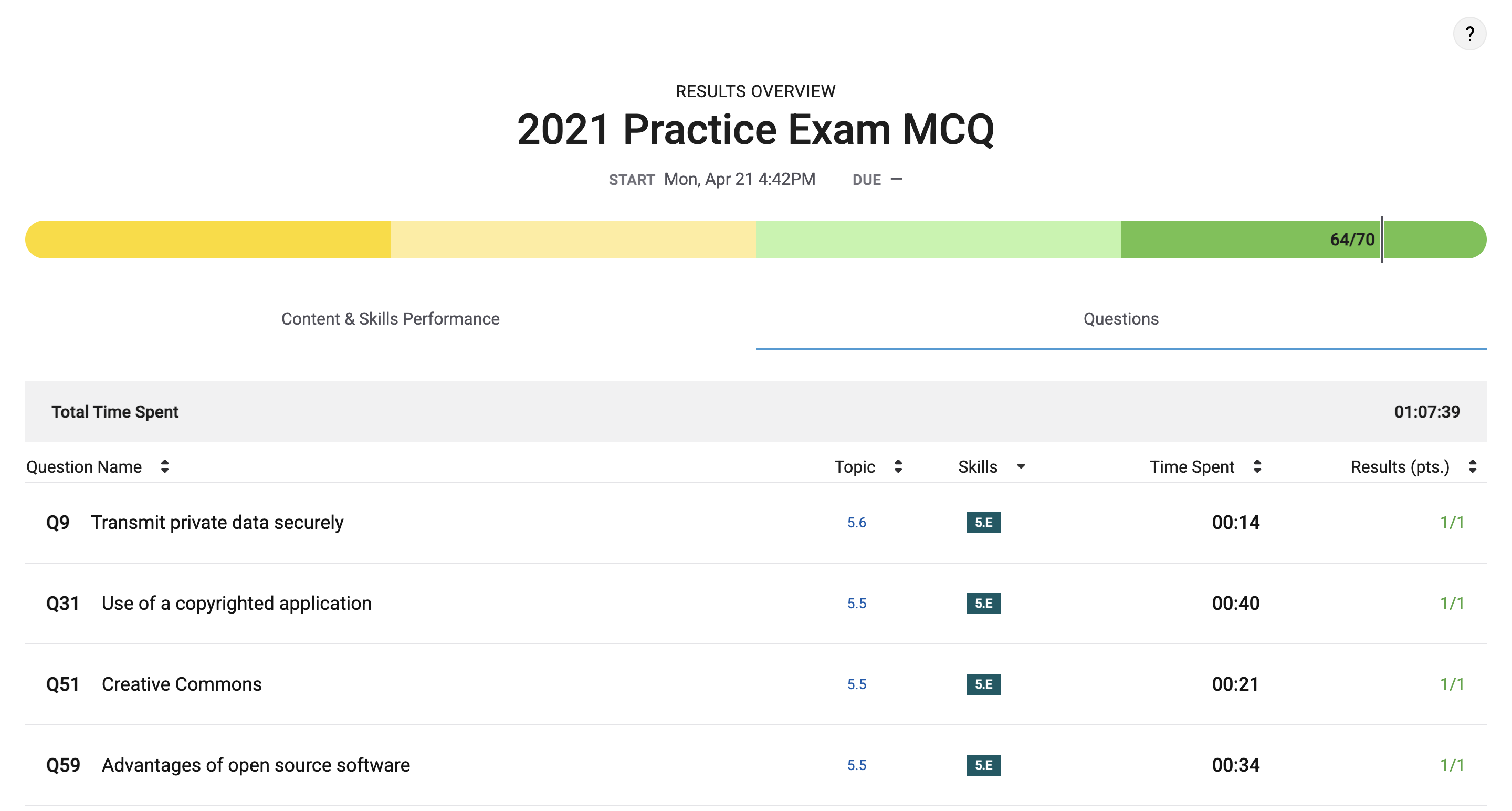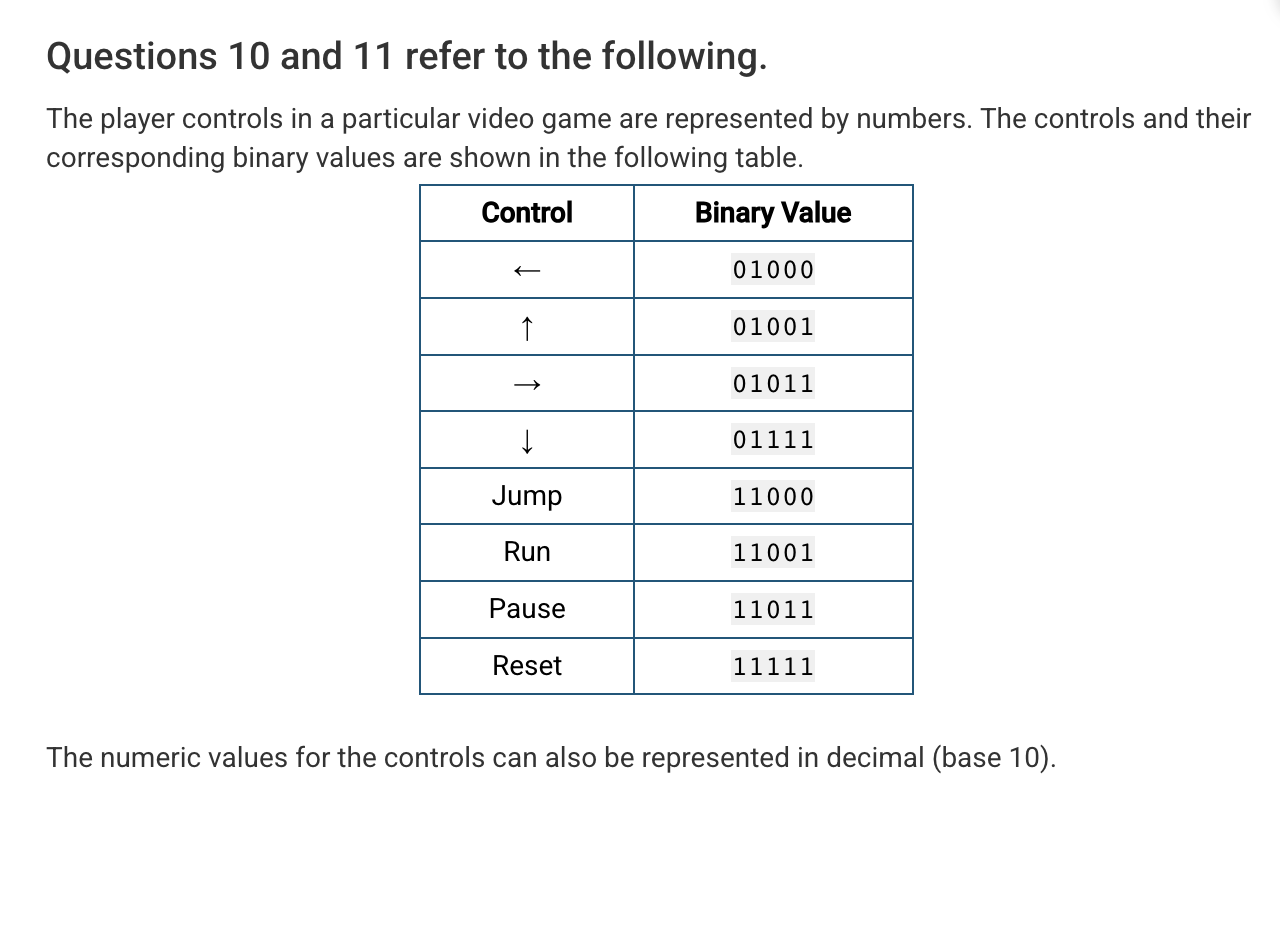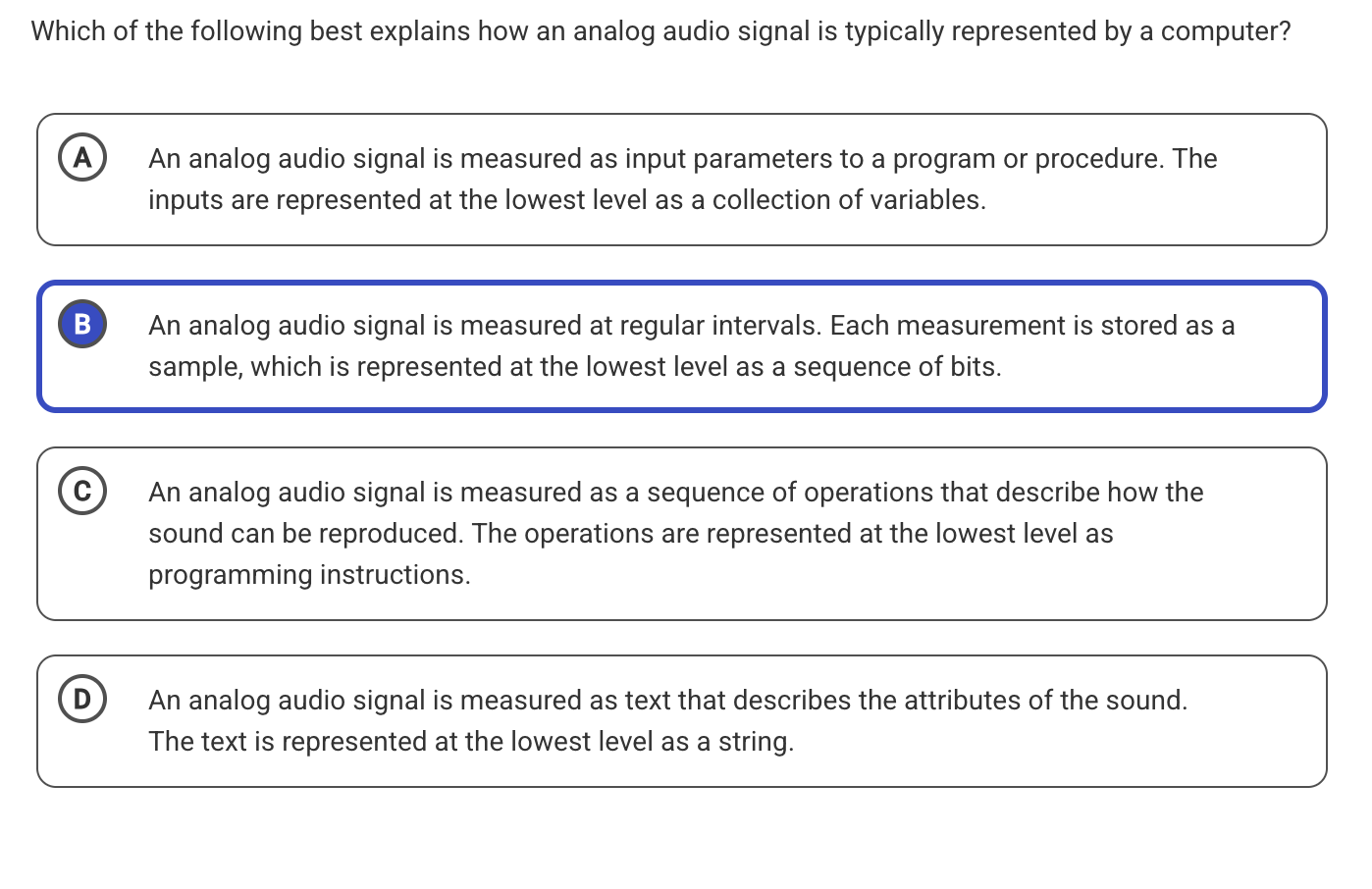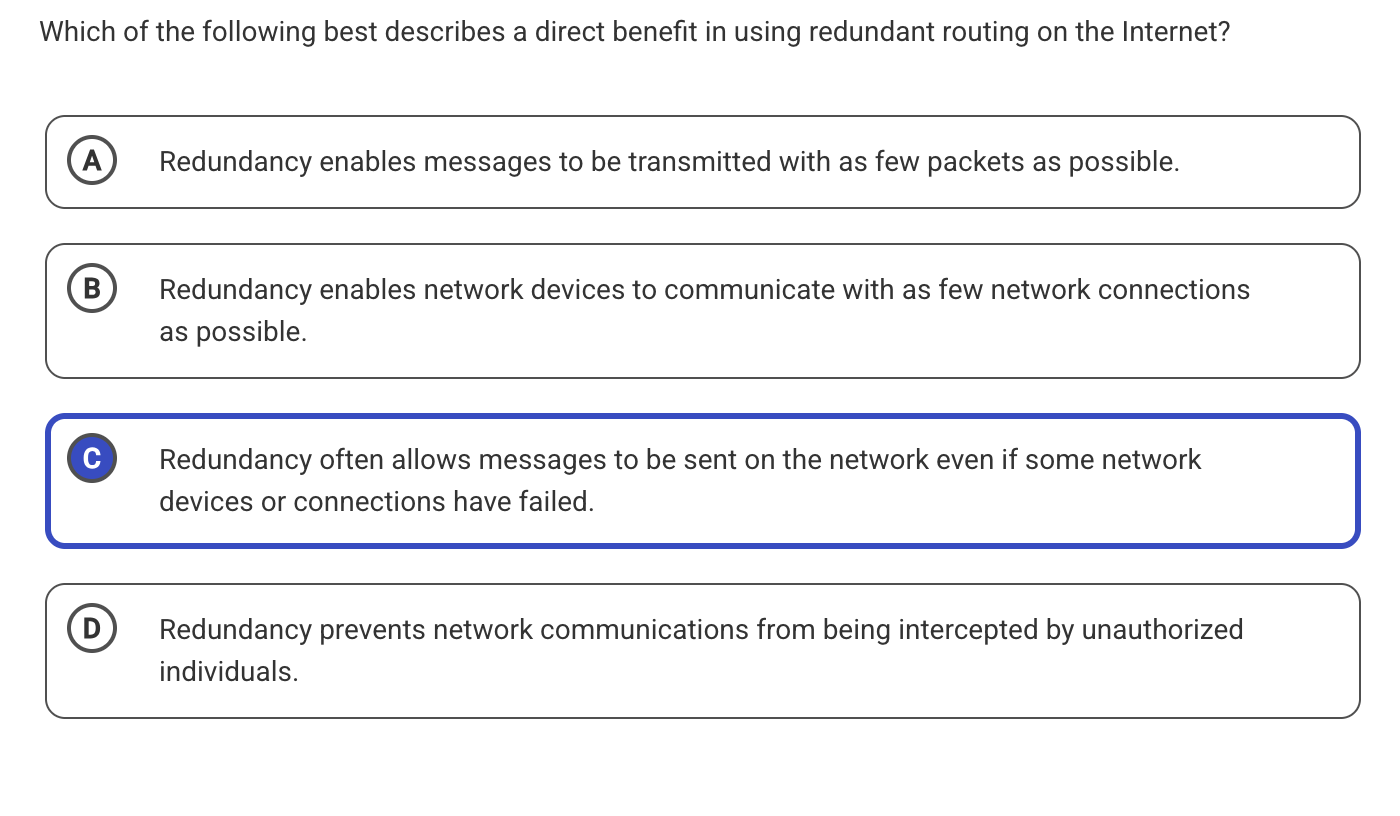Personal Learning Blog - MCQ Prep
Collection of topics
MCQ Questions Overview
1. Conceptual Questions
These test your understanding of key computing ideas without code.
Examples:
- What is an example of abstraction?
- How does compression affect file size?
How to Tackle:
- Review vocab from each “Big Idea.”
- Think in real-world examples (e.g., maps, music files, passwords).
2. Pseudocode Logic
You’ll be given code-like logic and asked to predict outcomes or identify errors.
Examples:
- What is printed by this loop?
- Which Boolean expression returns true?
How to Tackle:
- Practice reading College Board pseudocode.
- Write out the steps or create tables to trace variable changes.
- Focus on common structures: IF, REPEAT, APPEND, REMOVE.
3. Data & Visual Interpretation
These involve reading graphs, tables, or program outputs to draw conclusions.
Examples:
- What conclusion can you draw from this bar chart?
- Which filter would produce this data result?
How to Tackle:
- Understand how data is collected, filtered, and visualized.
- Know basic spreadsheet/filter logic.
4. Cybersecurity & Internet
These questions check your knowledge of data transmission, encryption, and risks.
Examples:
- What protocol ensures secure data transfer?
- Which situation best explains a phishing attack?
How to Tackle:
- Review protocols: HTTP vs HTTPS, TCP/IP, DNS.
- Know definitions and consequences of cyber threats.
5. Impact of Computing
Focuses on ethics, bias, data privacy, and social effects of computing.
Examples:
- What is a possible negative impact of facial recognition?
- How does bias enter through training data?
How to Tackle:
- Think critically — there’s not always one “right” answer.
- Ask yourself: Who benefits? Who might be harmed?
2021 MCQ

Difficult Questions on 2021 MCQ

Make sure I understand how to convert binary to decimal

Make sure I have an understanding of storing unique data types

Make sure I know what redundant routing is in computing